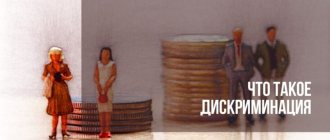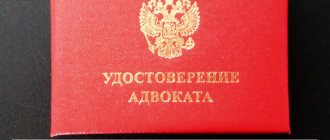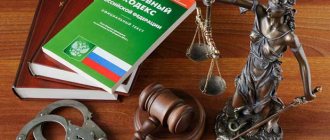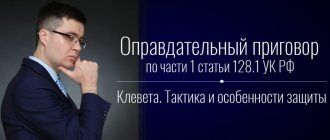What are human rights?
In the international system of law, based on the concepts of democracy and the rule of law, the following concepts are distinguished:
- Human freedom is the ability and opportunity for a person to choose his behavior regardless of external conditions.
- A human right is a partially limited human freedom, where the limitation is the freedom of every other person.
- The rights and freedoms of a citizen are the rights and freedoms of a person inherent in him by virtue of belonging to a particular country (citizenship, nationality) and protected by the legislation of that particular state, as well as the international law in force in it.
In addition, several categories of human and civil rights and freedoms are identified based on their characteristics and scope of implementation. Human rights are personal, political, social, economic, cultural and environmental. True, such a classification is considered to be largely arbitrary, since it is often difficult to draw a clear line between the rights of different categories.
The human rights system is quite dynamic. Under the influence of many factors, new human rights emerge over time - universal human values that must be recognized at the state and interstate level.
If we highlight the key principles (properties, features) of all human rights, they boil down to the following:
- Equality and universality - human rights are equal for all people and are inherent to everyone, regardless of their individual characteristics.
- Complexity – human rights are interconnected, interdependent and form a single system, which is the basis of the legal status of an individual.
- Naturalness - human rights cannot be imposed, given or taken away; they are inherently connected with a person’s personality and belong to him regardless of external factors.
- Social character - talking about the existence of human rights as certain values and rules, their implementation and protection is possible only in social conditions.
- Independence from the legislation of the country of residence or citizenship - human rights are recognized at the global level; they belong to every person, regardless of where, in what state and in what status he is located.
- Human rights, along with other categories, determine the level of development of civilization as a whole.
Main Causes of Harassment
Cases of human rights violations occur everywhere in the modern world. There are several reasons for this:
- Political regime. People are best protected in a democracy in a state where each individual member of a developed society has equal rights with others. Now, in many countries, anti-democratic regimes have developed, and in some individual cases - even completely anti-people. There can be no talk of any guarantee of rights.
- Religion. In many Asian and African countries, religion has a serious influence on society. Radical movements often oppress, for example, women's rights.
- Problems in the economy. Any economic difficulties lead to a noticeable decrease in the standard of living of the population. In the context of increasing problems in society, observing the rights of each individual citizen (for example, the right to decent wages) becomes more difficult.
Where are human rights established and regulated?
Human rights are not regulated by anything, because they cannot be regulated in principle. One of the key characteristics of human rights is their existence regardless of recognition in any state and, accordingly, their consolidation and regulation at the legislative level. But at the same time, the limits of one person’s rights are the rights of every other person.
We all live in a certain society and in a certain state, so respect for human rights is not such an absolute category. You can declare your rights as much as you like, but until they are enshrined, recognized at the state level and, most importantly, until the state provides effective tools for the implementation and protection of human rights, they will not be respected. And there is only one thing left to do - either reconcile, or leave for another country, or turn to international institutions for the protection of human rights, which, however, often still entails the need to leave.
In democratic countries that adhere to the concept of the rule of law, fundamental human rights are established by the state - recognized and enshrined at the level of national legislation of each individual country. As a rule, they are reflected in the Constitution or other laws.
In addition to national legislation, human rights are enshrined at the international level. The founding instrument is the International Bill of Human Rights, which consists of the Universal Declaration of Human Rights, the International Covenant on Economic, Social and Cultural Rights and the International Covenant on Civil and Political Rights. The Convention for the Protection of Human Rights and Fundamental Freedoms operates at the level of the Council of Europe. Unlike all other international instruments, the Convention provides for a highly effective protection mechanism - accepting appeals and considering complaints about violations of human rights and freedoms.
Unfortunately, not all countries in the world adhere to the concepts of democracy and the rule of law, and in many states the situation with respect for human rights is at a catastrophically low level. But even in such a situation, anyone has the right to exercise their inalienable human rights - freedom of movement and choice of place of residence, as well as the right to asylum.
Violations of rights: the law to protect citizens
Such actions are considered a criminal violation. But many of our compatriots are so legally illiterate that they are ready to endure it every time without trying to protect themselves. I don't want to impinge on anyone's level of education, but this is true. In my work, I often come across complaints that a boss humiliated me in front of employees at a meeting or insulted a neighbor on the landing. This and much more is nothing more than a violation of human rights in Russia, and evil must be punished. Therefore, simple tips will help to resist such chaos.
Such violations include:
- violations in labor relations;
- discrimination;
- refusal to hire;
- illegal dismissal;
- expulsion from an educational institution without specific reasons (racial discrimination, for example);
- refusal to receive explanations regarding the violation of freedom;
- non-payment for services rendered or work performed.
Attention! Any case that involves humiliation or insults can be linked to this article and require criminal prosecution of the offender.
But the majority of our fellow citizens continue to remain silent, giving the opportunity to outright boors and criminals to act in a similar way towards other people. Some people explain this by saying they don’t want publicity. Others say: he’s the boss, he can do anything.
Here I remembered a slogan from the time of the union, which said that the buyer is always right. But how many times have I personally seen scenes in supermarkets where the “right” buyer openly insults the cashier or seller. Afraid of losing their jobs, the women simply remained silent, washing themselves with tears. I have stopped this kind of chaos many times. But I wasn't always there. Everyone is able to protect themselves on their own.
It is enough to make it clear to the insolent person that there is an article of the Criminal Code and by his action he clearly violates it. After all, there are so many witnesses in the store. They will definitely appear in court. This practice discourages violators. They fall silent and retreat, but do not make a public apology. And what do modern collectors do when trying to extort a debt from a debtor? This is generally a separate category of citizens for whom the law is not written. This is complete discrimination against a person who finds himself in a difficult financial situation and his close circle, which falls under several more articles:
- humiliation;
- disclosure of confidential information;
- extortion.
But as a practicing lawyer, I very rarely come across lawsuits from people who want to protect their rights. This is a mess. Nothing like this should happen in the 21st century. After all, we live in a developed state, and not a capitalist country where the rich can humiliate the poor. But even there people have already learned to defend their rights. The situation in the Russian Federation is simply terrifying, and the time to change everything has not come today, it came several decades ago.
Responsibility for violations
Not everyone bears responsibility for human rights violations, and not always. Of course, this is a terrifying fact for the modern world, where democracy reigns. In addition, sometimes, as part of the responsibility for violating the rights of citizens, some states resolve their own geopolitical or economic difficulties. Here, for example, the role of the United States in international relations comes up. States “make” revolutions and wars according to their standard pattern: they declare that human rights are being violated in the country (for example, the right to work or freedom). They then send in troops to resolve the situation, satisfy their own needs (for example, eliminate potential rivals in the political arena or enjoy economic privileges).
An example of liability for violation of rights can be considered, for example, the Nuremberg trial of doctors of 1946-1947 (also called “USA v. Karl Brandt”). German doctors were accused of the following:
- studies of the effects of hypothermia, sea water, and low blood pressure on the human body;
- testing a typhoid vaccine on humans;
- experiments to study bone transplantation;
- research with mustard gas, which is a chemical weapon;
- implementation of the killing program (T-4);
- medical experiments on sterilization.
The defendants were charged with participating in war crimes against humanity. The court sentenced most of the doctors to death (hanging), three to life imprisonment, two to 20 years in prison, one to 15 years in prison, and one to 10 years. Three doctors were acquitted.
Why contact a lawyer?
Almost any crime against constitutional rights under Art. Art. 139-149 of the Criminal Code of the Russian Federation can be interpreted both in favor of the accused and to his detriment. It all depends on the competent presentation of the material and the reliability of the evidence.
It is almost impossible to defend your rights (as a plaintiff or accused) on your own, even in the presence of significant evidence. The opponent will prove the opposite in every possible way according to the law and bypassing it. Without experienced lawyers, understanding legal issues is difficult and often impossible.
In the work of a lawyer under Art. 136 of the Criminal Code of the Russian Federation includes:
- legal advice on any issues;
- clarification of criminal law norms;
- an opinion on a specific situation from a lawyer, which gives an idea of the possible outcome of the case;
- assessing the prospects for future proceedings;
- studying all available materials on the case;
- studying the evidence presented by the accused party, the plaintiff and the investigator for their legality under the Code of Criminal Procedure of the Russian Federation;
- assessment of the preliminary investigation;
- if errors and violations are identified, appeal the actions of legal authorities;
- filing required complaints, petitions and statements in court;
- representing the client's interests during court proceedings;
- appealing the verdict to higher authorities, if necessary.
The services of qualified lawyers can be obtained from our company by contacting a lawyer by phone or chat. After the initial consultation, an action strategy will be developed, the cost of a lawyer’s services will be established, and all measures will be taken to resolve the problem. Knowledge of the laws is the key to successful proceedings even in the most difficult situations.
Rule of law
In accordance with Art. 55 of the Constitution, freedoms and rights can be limited by the Federal Law only to the extent necessary to ensure the protection of the state system, health, life, morals, interests of other persons, and the defense of the country. The existence of a certain framework is established according to the need to protect recognized values. In understanding the constitutionality of existing restrictions, the explanation of the Constitutional Court of Article 55 in Part 3, the provisions of which establish the relevant criteria, is of particular importance.
Known violations in Latvia
Latvia does not recognize more than 14% of the country's population as citizens (the concept of “not a citizen of Latvia” is even applied to them). Russian, which is the native language of 37% of the country's population, is considered a foreign language, and opportunities to communicate and study it have been sharply limited since the republic gained independence. Employees of medical institutions are even prohibited from serving patients in Russian (!). Such facts very severely violate many human rights (the right to one’s native language, to receive medical care, to education). This also violates more than one Latvian law.
The problem of slavery in many countries
Another example of human rights violation is slavery. In the Russian Empire, the slave trade was prohibited by decree of Peter I in 1723, and serfdom was abolished in 1861. Passports to collective farmers began to be issued only in 1974, i.e. already during the times of the USSR. The last country to abolish slavery is Mauritania (1981). However, cases of the slave trade and slavery (i.e., gross violations of human rights) are also found in the modern world.
At least 175 thousand people disappear without a trace every year from Russia and Eastern European countries alone. At least four million people are victims of trafficking, the majority are citizens of underdeveloped countries in Asia and Africa. Traders of human goods make huge profits, amounting to several billion dollars. The black market slave trade is the third most profitable activity after drug trafficking and arms trafficking.
Most of the slaves in developed countries (Europe and the USA) are girls and women who were forced into prostitution or forced to sell their bodies. People are also forced to work on construction and agricultural sites, and as domestic servants. Separately distinguished:
- sexual slavery (especially common in the Middle East, Eastern Europe, Asia and Africa);
- domestic slavery (in East and West Africa, as well as in diasporas of people from African countries living in the United States and Europe);
- child labor (most often in Asian countries);
- migrant slave labor;
- forced involvement of children in military conflicts (in Congo, Liberia, Somalia, Sierra Leone).










